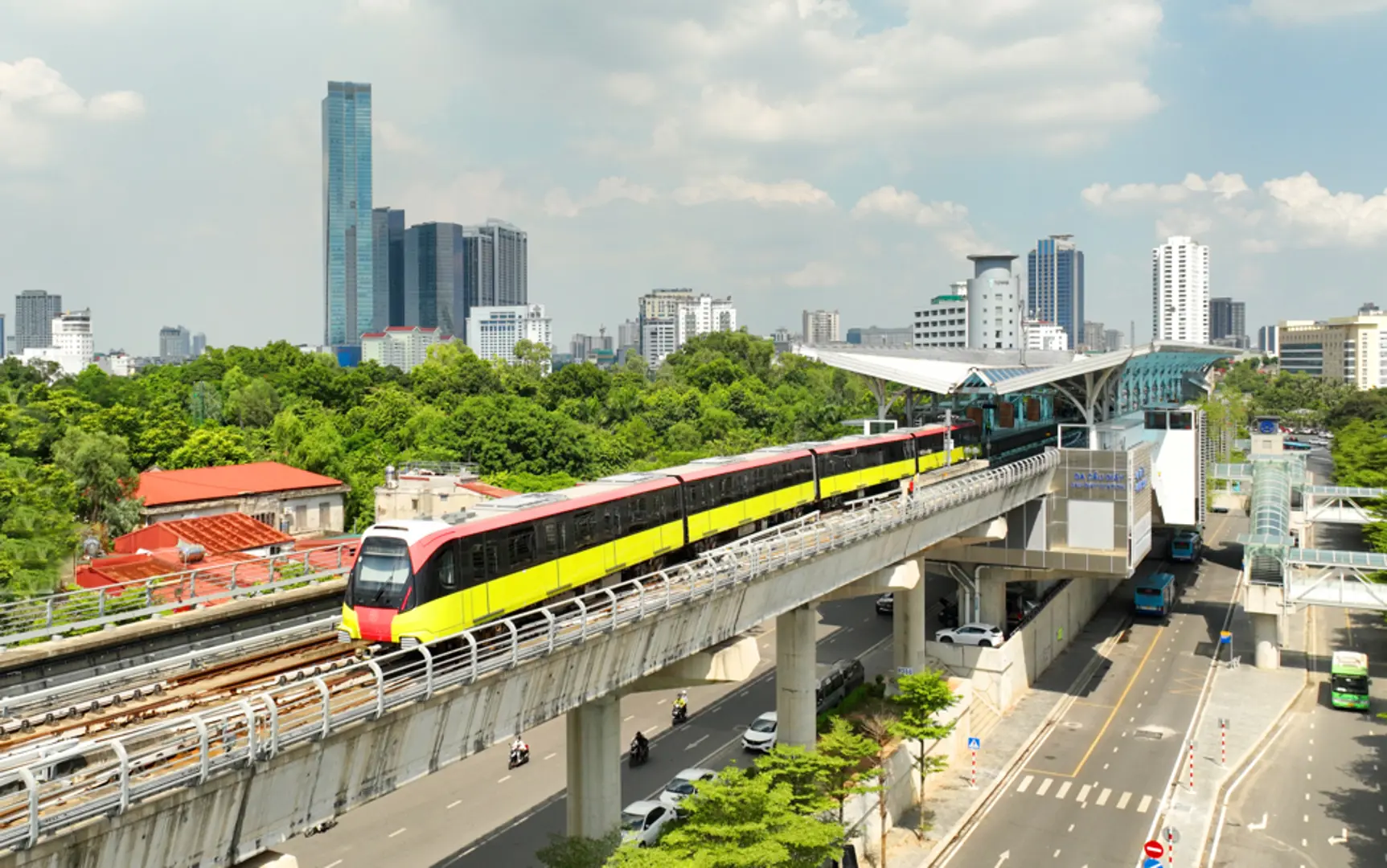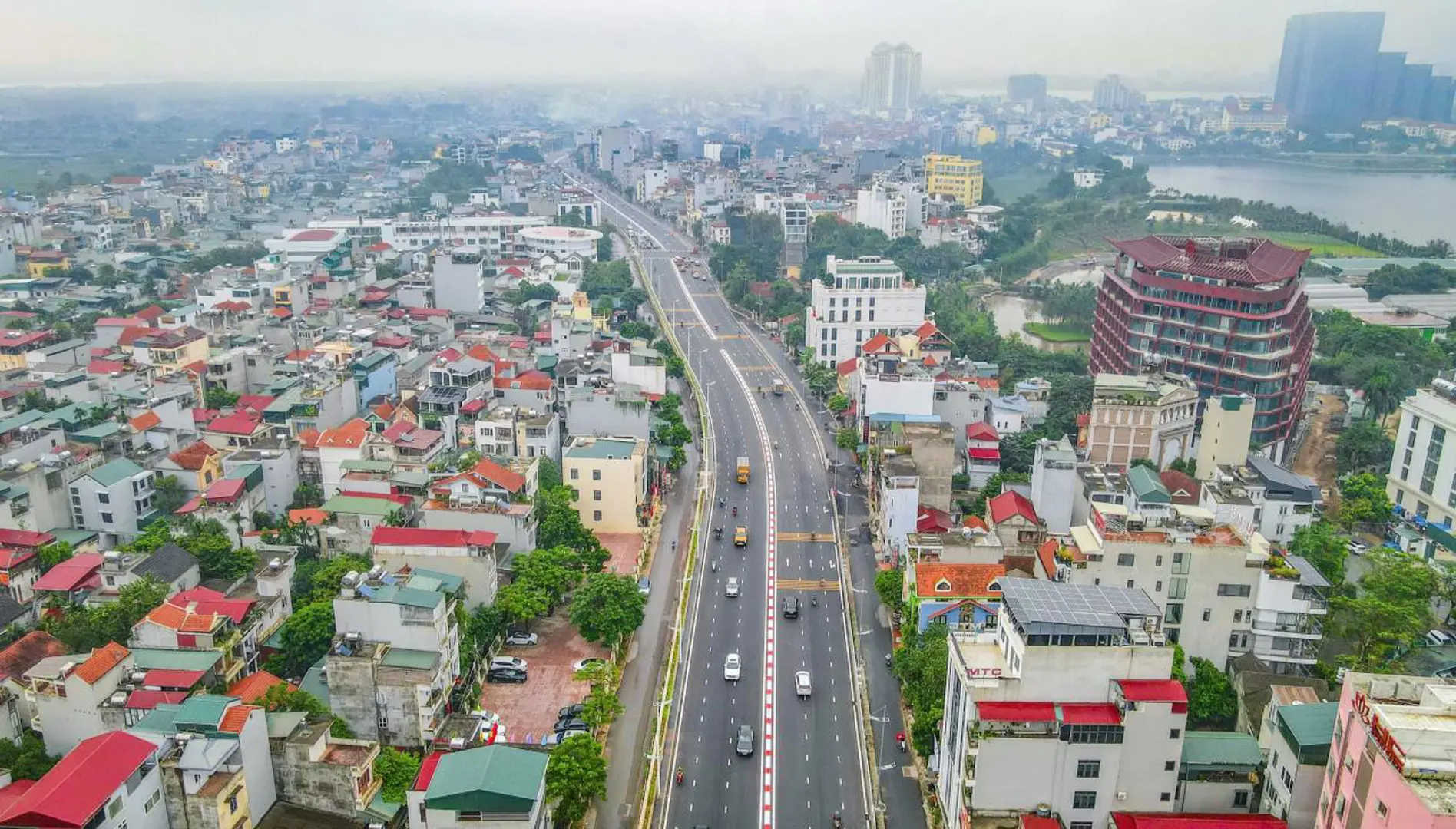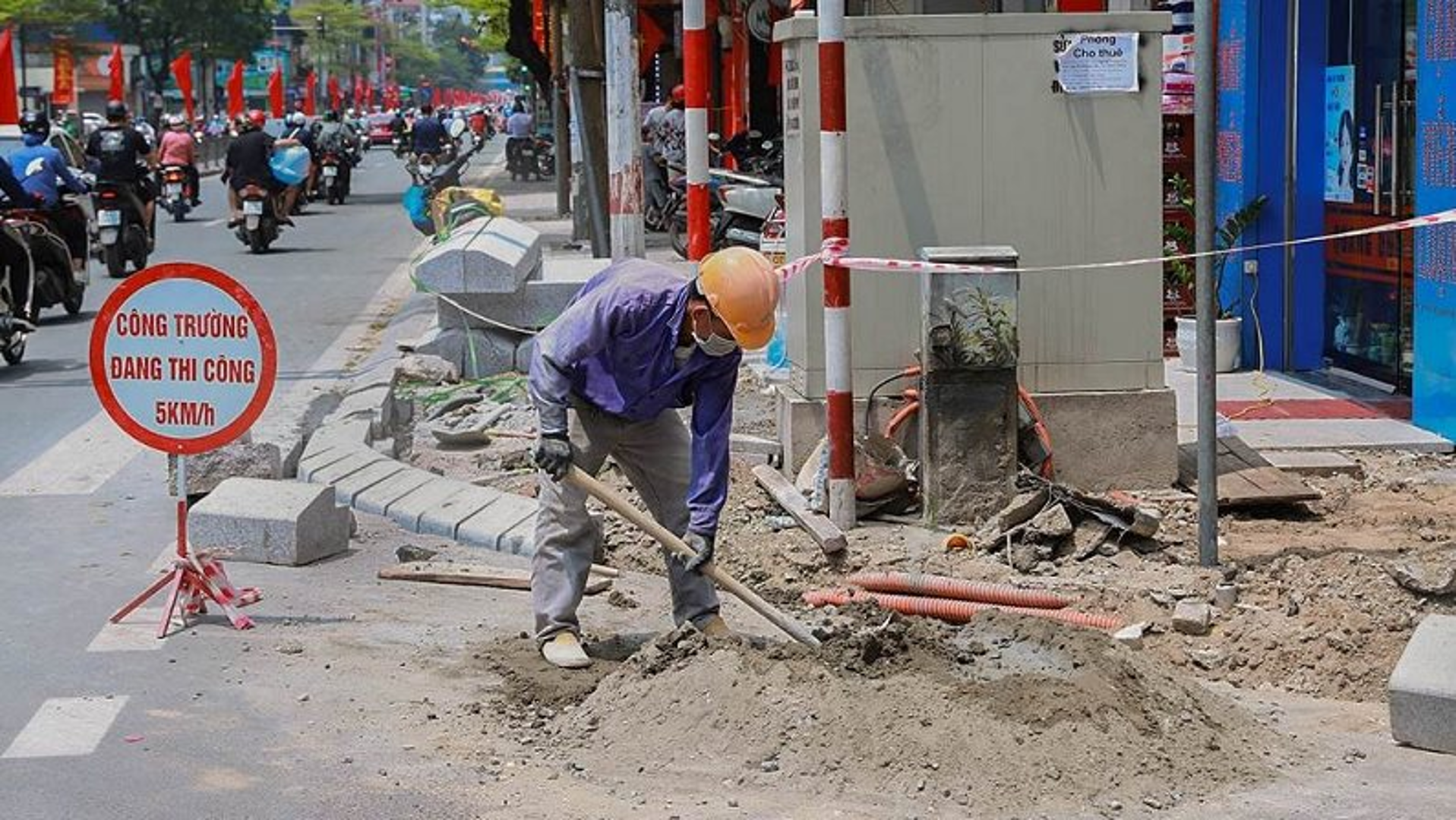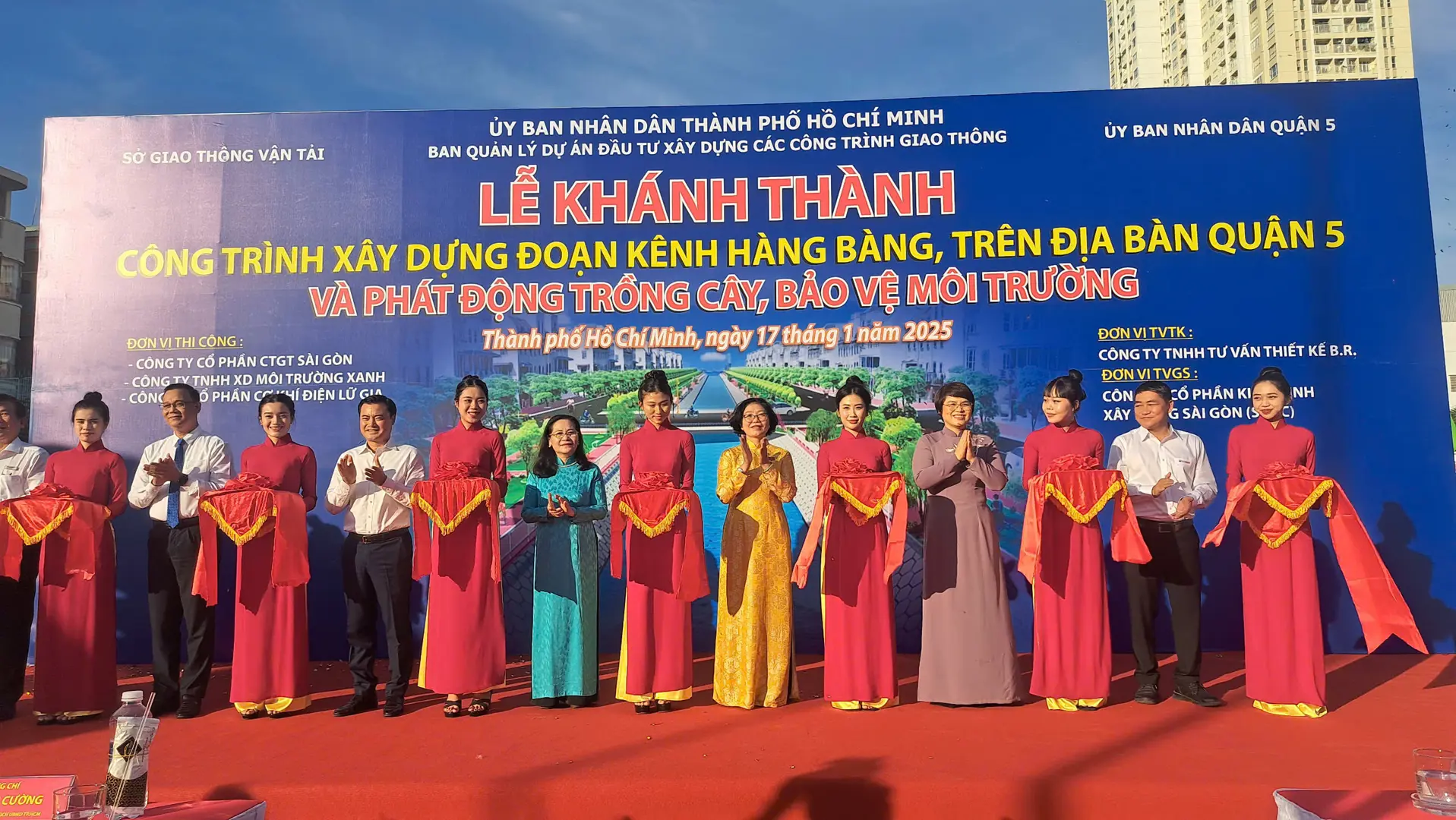Support measures to strengthen Hanoi's small businesses and local industries
In 2025, the geopolitical and economic landscape is expected to remain complex, affecting production, investment and trade activities.
Despite the many difficulties it has faced, Hanoi's industrial production has grown by 5.86%, making a significant contribution to the capital's economic growth in 2024.
Nguyen Kieu Oanh, Deputy Director of Hanoi's Department of Industry and Trade, spoke to Hanoimoi Newspaper about the city's strategies to help businesses improve production and integrate into the global supply chain.
In the face of ongoing global economic challenges, what strategies will Hanoi implement to support businesses in 2025?
| Electronics manufacturing at Rhythm Precision Vietnam in Noi Bai Industrial Park, Hanoi. Photos: Pham Hung/The Hanoi Times |
In 2025, the world still faces serious geopolitical and economic issues. Although a slowdown is expected, global inflation will remain high. In this context, the Ministry of Industry and Trade plans to implement various solutions to support businesses.
Hanoi aims to ensure that all enterprises producing key industrial products benefit from support policies. The city is committed to effectively and promptly implementing interest rate and credit policies to support businesses, residents, and priority sectors.
Efforts will focus on improving the investment and business environment by addressing bottlenecks and challenges, in particular for off-budget investment projects using land, thereby fostering economic and social recovery.
The city will help companies innovate, improve production capacity and increase localization rates. It will closely monitor global economic trends, provide market intelligence-especially on potential markets-and guide associations and companies in exploiting traditional markets while exploring new, promising ones. Hanoi will also promote awareness of free trade agreements to help businesses understand opportunities to boost production and supply chain linkages.
The capital is committed to strengthening trade promotion activities and connecting domestic manufacturers and enterprises. Facilitating links between local enterprises and foreign counterparts through trade conferences, fairs, and exhibitions is a key strategy to help enterprises increase production, improve sales in the domestic market, and reduce inventories.
Growth in the midst of adversity
What measures has Hanoi implemented in 2024 to restore industrial production and trade in response to global supply chain disruptions and natural disasters?
Many northern localities, including Hanoi, also suffered significant damage from storms and flooding, affecting infrastructure and disrupting business operations. In response, the city has adopted various measures to promote the recovery of industrial production, domestic trade, and export-import activities, which are vital for Hanoi's economic growth this year.
The industrial production index increased by 5.86% compared to 2023. In particular, most manufacturing sectors posted significant gains: machinery production up 26.6%; paper products up 9.8%; furniture up 8.8%; clothing up 8.6%; food processing up 8.1%; and electronics up 7.7%.
More specifically, what initiatives has the department undertaken recently?
We have implemented several pioneering solutions to address business challenges. The department has actively worked to facilitate access to supportive policies from both the central government and the city to enhance production, trade and export activities.
Efforts have focused on accelerating the construction and investment in infrastructure for industrial clusters to foster a conducive environment for business development. Additionally, measures have been adopted to reduce inventories and boost export targets by organizing trade promotion events and supporting enterprises in direct exports through e-commerce platforms.
What are the challenges faced by small businesses?
Small businesses are grappling with numerous challenges related to manufacturing and commercial space due to rising land prices, all while facing limited financial resources. The lack of manufacturing acreage prevents these companies from taking advantage of opportunities to expand their facilities and develop strategies to participate in the global supply chain that has been disrupted since the Covid-19 pandemic.
For many years, small and medium-sized enterprises have struggled to secure land. The infrastructure of existing industrial clusters is often inadequate and deteriorating, and progress in clearing land for new industrial development has been slow, with inconsistent procedures for secondary investors.
In addition, the inability to attract large-scale production investment projects that could drive the development of supporting industries means that Hanoi's key and supporting industries are not fully corresponding to the city's potential. The city's support policies for enterprises with products recognized as key industrial products have also not been clearly defined.
Policies supporting enterprises
| Electronics production at Katolec Vietnam in Quang Minh Industrial Park, Hanoi. |
What are the challenges facing small and medium-sized enterprises in Vietnam's manufacturing sector and how do they affect their competitiveness?
The manufacturing sector continues to face many challenges. Most of Vietnam's ancillary industries are made up of small and micro-enterprises that often have low levels of technology and management skills, as well as limited human resources. This makes it difficult for them to meet the increasingly stringent standards, quality requirements, pricing and delivery schedules set by their partners.
With small and medium-sized enterprises making up 88% of the sector, many lack access to market information and opportunities to connect with customers. In addition, insufficient collaboration between companies hinders the development of the supporting industry. As a result, local companies are not yet fully integrated into the value chains and ecosystems of top international firms.
What specific strategies is the Hanoi Department of Industry and Trade implementing to support the development of small and medium-sized enterprises?
Hanoi has identified the development of ancillary and key industries as an important strategy to attract foreign direct investment and promote the growth of small and medium-sized enterprises (SMEs). The Department of Industry and Trade has actively collaborated with various agencies to implement numerous mechanisms and policies to support these businesses, resulting in a continuous increase in their quantity, scale and quality.
The city prioritizes specific industries based on competitive advantages, focusing on those that can contribute significantly to the global production network and value chains. This includes the development of industrial clusters for prioritized sectors with high specialization and value.
In addition, we are strengthening connections to help ancillary industries become suppliers to domestic and international customers, while promoting investment attraction. Foreign partners help companies implement management systems that meet global production standards, improve the quality of the workforce through training, and encourage research and development as well as technology transfer and innovation in manufacturing.
For key industrial products, we help companies improve technology and human resources, while promoting trade and investment activities. They are committed to resolving challenges and accelerating the establishment of necessary infrastructure for industrial clusters, ensuring effective land use for companies willing to invest in production.
Thank you for your time.

Foreign investors to develop $2 billion chip manufacturing project in Vietnam
Vietnam welcomes and encourages investors in this field with appropriate and specific mechanisms.

Hanoi businesses embrace energy conservation
Hanoi authorities have teamed up with relevant agencies to provide technical assistance to businesses in developing energy efficiency indices and adopting advanced energy-saving technologies.

Hanoi approves urban development program until 2035
The total estimated minimum development investment capital through 2035 is projected at $122.3 billion, with $52.2 billion for framework infrastructure and $70.1 billion for urban upgrades.




















